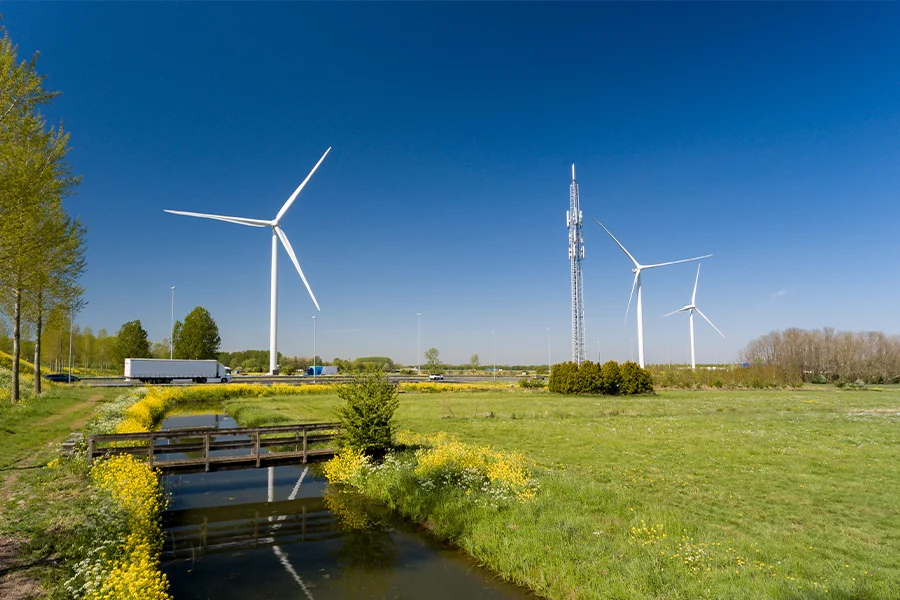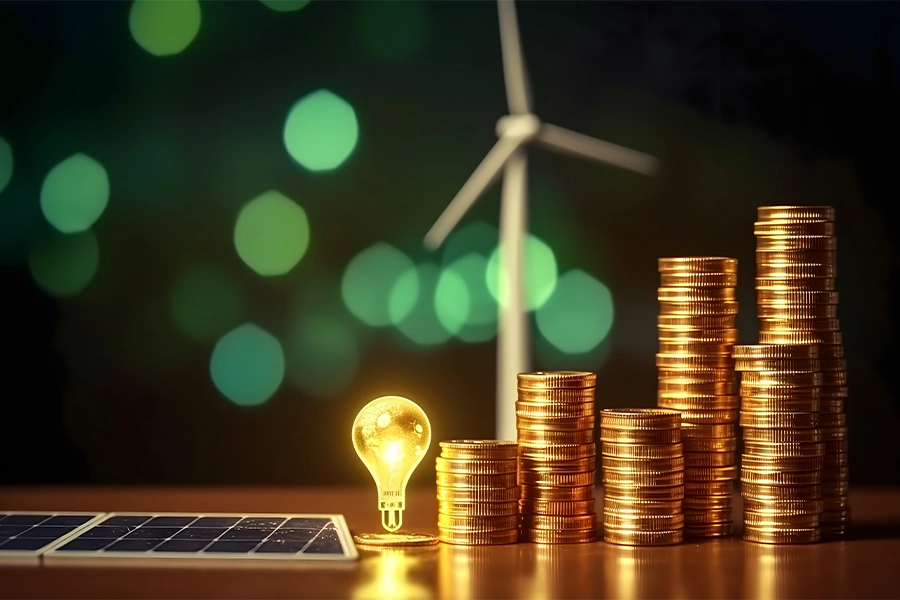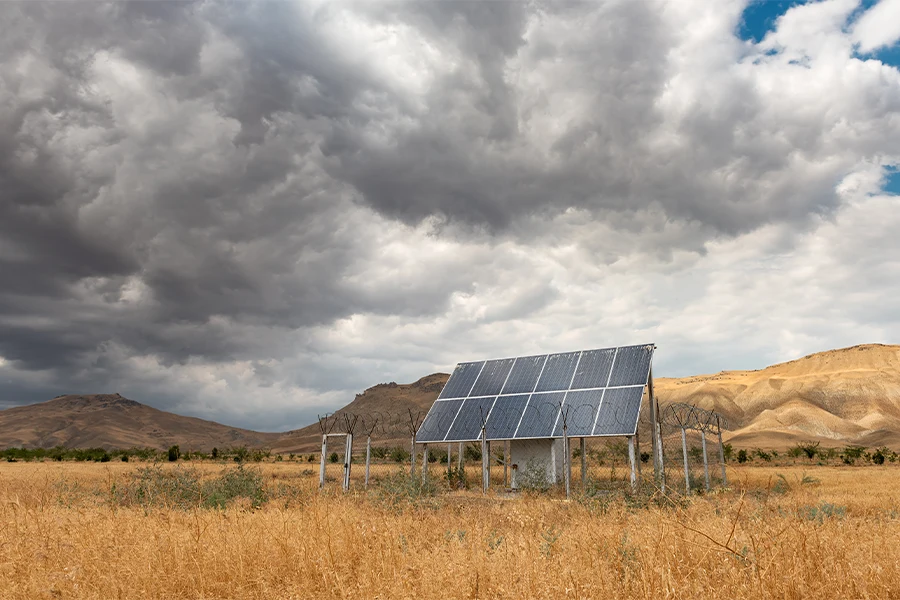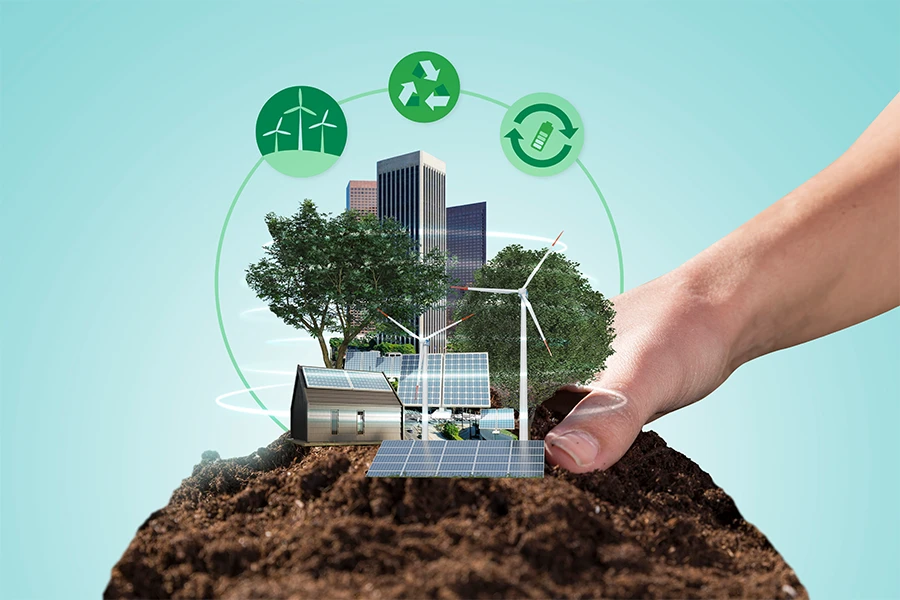At a time when our choices can determine the future of our planet, imagine a world where the air you breathe is cleaner, where abundant energy is available to everyone, and where climate crises are saved. This impressive force of nature has appeared as a beacon of hope and offers us a way to a brighter future.
In this article, we will describe the advantages of renewable energy, from reducing greenhouse gas emissions and fighting climate change to increasing energy security and economic benefits. We will explore the potential of renewable energy and discuss how they not only reduce the adverse effects of our current energy systems, but also offer exciting economic and social opportunities. We intend to introduce a future which cleaner, more sustainable and affordable energy is not just a possibility but a reality.
The contents you read
Environmental advantages of renewable energy
One of the advantages of renewable energy is environmental protection, which is done by drastically reducing the emission of greenhouse gases such as carbon dioxide (CO2), methane (CH4) and nitrous oxide (N2O). The use of fossil fuels to produce electricity and heat is the main source of these emissions. Renewable sources such as solar and wind produce energy without emitting greenhouse gases, presenting them as a clean and sustainable alternative to coal, natural gas and oil.
Improving air quality is another advantages of renewable energy, combustion of fossil fuels in power plants, vehicles and industrial processes not only emits CO2, but also other harmful pollutants including sulfur dioxide (SO2), nitrogen oxides (NOx) and other suspended particles in the air.
These pollutants are responsible for various health challenges and environmental problems. Renewable energy sources do not emit these pollutants, which means they can improve air quality. It has direct health benefits and reduces the incidence of respiratory diseases, cardiovascular problems, and premature deaths associated with air pollution.
Therefore, by turning to renewable energy sources, societies can reduce their dependence on limited and environmentally destructive fossil fuel sources. This reduces the environmental and social impacts associated with the extraction, transportation and burning of these fuels.

Economic advantages of renewable energy
The advantages of renewable energy are not only limited to environmental benefits, but also include economic benefits. The use of renewable energy sources, in addition to earning money from them, reduces the overall cost of electricity production for businesses and communities and improves economic conditions.
The growth of the renewable energy sector contributes to the overall economic growth. Less pollution means a healthier population and a more productive environment for agriculture. Earning stable income is one of today’s concerns in the financial world, and by using this type of energy, you can experience stability and stability in your income.
Renewable energies can increase the resilience of businesses and communities by reducing their vulnerability to energy supply disruptions and price fluctuations associated with fossil fuels. This risk reduction can protect against economic losses during energy crises or disasters, such as peak times.

Advantages of renewable energy in terms of energy independence and security
The use of available renewable resources can significantly reduce a country’s dependence on imported energy and increase energy security. Relying on a variety of available renewable resources such as the sun, wind, water, geothermal and biomass can diversify a country’s energy sources. This reduces vulnerability to single-source supply disruptions and reduces dependence on imported fossil fuels, which can be subject to price fluctuations and geopolitical tensions.
The use of renewable resources allows a country to produce its own energy and reduce its reliance on foreign energy suppliers. This increases energy independence and reduces exposure to international energy market dynamics and potential supply chain disruptions.
An advantage of renewable energy is that it is less vulnerable to global supply chain disruptions, political conflicts, and natural disasters that can affect the transportation and distribution of fossil fuels. In the face of such challenges, a country can maintain a more reliable and flexible energy system.
The advantage of energy access for all
What huge fossil fuel power plants can’t do! Many people live in out of grid areas, and renewable energy sources have the potential to provide energy access to a variety of populations. Most people who need electricity and are in out of grid areas have access to abundant resources such as sun, wind, water, and biomass that they can make excellent use of, and this is one of the benefits of renewable energy.
Most renewable energy can be combined with energy storage systems such as batteries to provide a stable and reliable power supply even in remote areas with renewable resources. This way of accessing energy does not require many surplus costs, costs such as transmission lines, maintenance, etc.
However, there are also challenges to meet the energy needs of people in remote areas, such as technical and logistical barriers, but it is much easier to solve these challenges against the challenges of providing electricity through fossil fuels in these areas!

Using renewable energy for the long term
As we said, the more we use renewable energies, the costs of energy production and distribution will also decrease. In addition, the maintenance and repair of the systems is also significantly reduced, which helps energy consumers in the long run and gives them the confidence to use these resources without worry. for example; Because solar energy systems have little breakdown, they can work for many years and meet the customer’s energy needs in the long run.
Conclusion
Embracing renewable energy is not only a wise choice for the environment, but a win-win solution for businesses and individuals alike. By harnessing the power of clean and sustainable sources such as solar, wind and hydropower, we can pave the way for a brighter and more sustainable future. The advantages of renewable energy are many; Reducing greenhouse gas emissions, reducing energy costs, energy independence, etc., each of which is very important for the growth of society.
But beyond these tangible advantages, the choice of renewable energy reflects our commitment to preserving the planet for future generations. In fact, this is a powerful statement of responsibility and testimony to our collective ability to create a better world, an invitation to become part of a global movement, in which each of us plays a pivotal role in building a harmonious and better future for future generations. Therefore, when you choose renewable energy, you don’t just make a practical decision, you make a conscious and compassionate choice. And you will create a brighter future.





